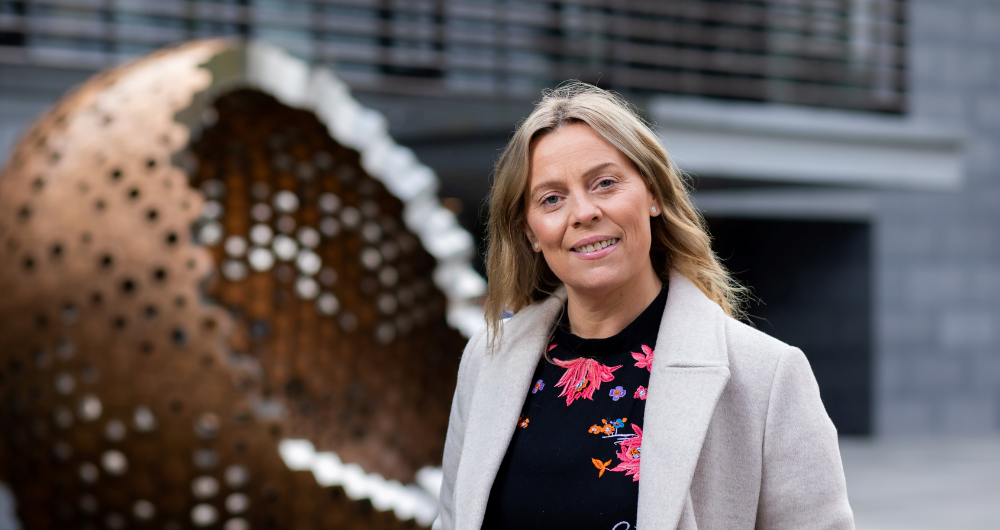
PROMOTE team calls on all academics to #buildthenetwork for women researchers in world-first
8 MARCH 2024, IRELAND: To mark International Women’s Day, researchers at seven universities are calling on academics across the country and beyond to join the PROMOTE project, an initiative funded by the Higher Education Authority (HEA) and supported by the Insight SFI Research Centre for Data Analytics, to provide networks and training aimed at keeping women in research.
Maynooth University (MU), Munster Technological University (MTU), University of Limerick (UL), South East Technological University (SETU), Dublin City University (DCU), University College Cork (UCC) and University of Galway are leading the call to #buildthenetwork online.
‘There is currently no digitised network that focuses specifically on early stage female researchers; the PROMOTE app will be a world first’ says Dr Marian Crowley-Henry, Associate Professor in Organisational Behaviour and Human Resource Management at Maynooth University’s School of Business and co-lead on the project. ‘The launch of PROMOTE is supported by a social media campaign featuring short videos from a range of academics stating why we need women in research.’
The app is currently in development by Dr Michael Scriney at the Insight SFI Research Centre at DCU.
The PROMOTE team is calling on all researchers, male or female, at any career stage, to get involved now by following PROMOTE’s social media channels.
‘We know that female researchers drop out of research jobs because they find it hard to get promoted, or to get made permanent or to publish,’ says Dr Katriona O’Sullivan, author and lecturer in Digital Skills in the ALL (Assisting Living & Learning) Institute, Department of Psychology, Maynooth University and PROMOTE co-lead.
‘There are myriad reasons for this – biased views, issues with confidence, fewer opportunities and fewer networks. PROMOTE aims to fix this by creating an online platform that shares promotion information with early career researchers and offers networking and support.’
‘We need as many people as possible to get involved so that the PROMOTE app will be a truly valuable resource for early stage female researchers. We know, for example, that this cohort is less successful at securing research funding – we need funding recipients to share their successful application forms. We want a network that is rich in expertise and in information about promotions, publishing opportunities, networking events.’
Two thirds of workers on temporary, part time contracts in higher education in Ireland are female, according a HEA report, and there is evidence that the situation worsened during the pandemic.
The PROMOTE project will run a series of training sessions at four of the partner universities to provide advice on career progression for early stage female researchers.
The PROMOTE team hope that the resource will also prove valuable to women working in corporate or other fields who may be considering a research career. The network will also support women who are facing further challenges to promotion because of differing ability, socio-economic disadvantage or other barriers.
‘Diversity in research leads to richer work environments and more innovative outcomes,’ says Dr O’Sullivan. ‘Today we start to #buildthenetwork that will keep female talent in research where it belongs.’
‘On the 8th of March, the PROMOTE team is asking you to support the project by helping to build the network for researchers – you can do this by following, liking and tagging the project on our social media channels.’
#buildthenetwork
#promotewomen
Instagram: promote.research
LinkedIn: Promote Research
X: @Promote_Women
Gmail: promotewomen2024@gmail.com
https://youtube.com/@Promotereaserch?si=9Qy4S1Ifkp4ZdkBZ
[Pictured; Dr Katriona O’Sullivan, Maynooth University]